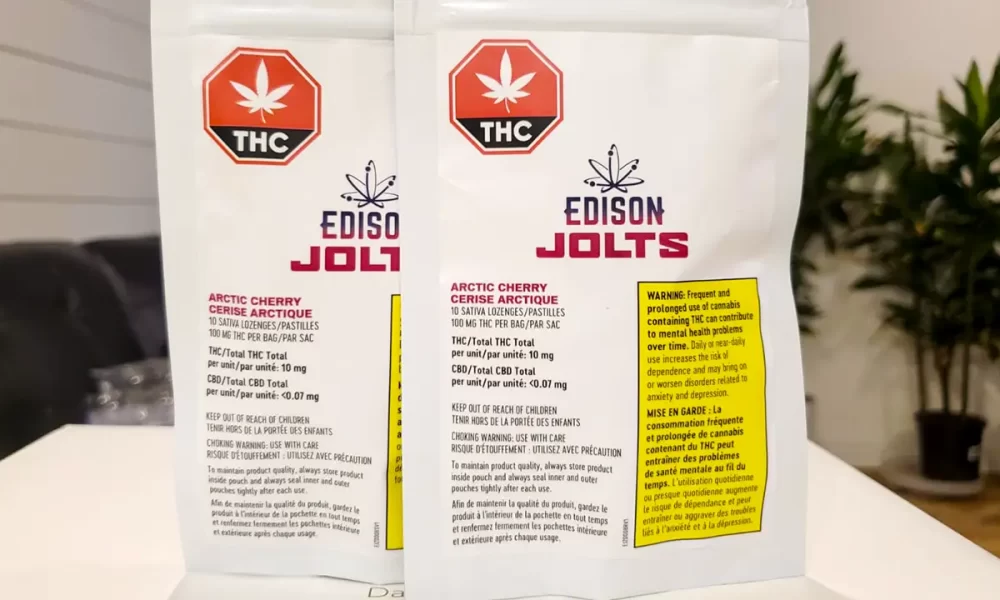Business
Organigram takes Canadian government to court over cannabis lozenge dispute

Canadian marijuana operator Organigram Holdings is asking a federal court to quash a Health Canada decision that the company’s popular ingestible cannabis lozenges should be classified and regulated as edibles instead of extracts.
The legal challenge could have broader implications for Canada’s regulated cannabis sector and affect millions of dollars in sales of high-potency lozenges and similar products.
Toronto-headquartered Organigram is seeking an application for judicial review.
In Canada, such reviews give stakeholders, including companies, the opportunity to challenge decisions by government authorities, explained lawyer Ranjeev Dhillon, a partner with Toronto-based McCarthy Tétrault and co-lead of the firm’s cannabis law group.
“I think a lot of people in the industry will be waiting to see what the result of this is, because if Organigram is successful, I think that could lead to more challenges in the future,” said Dhillon, who is not involved with Organigram’s case.
Organigram revealed the court proceeding against the federal health department when it posted quarterly results earlier this month.
The dispute between the cannabis company and Health Canada revolves around the regulatory classification of Organigram’s Edison-branded Jolts cannabis lozenges.
The outcome could impact Organigram’s revenue: Retail sales of Jolts lozenges totaled nearly 10.9 million Canadian dollars ($8 million) in Alberta, British Columbia, Ontario and Saskatchewan in 2022, according to point-of-sale data from Seattle-based cannabis analytics firm Headset.
Organigram CEO Beena Goldenberg told MJBizDaily the dispute was also “reputational.”
“We believe we have a compliant product. … We believe that the regulatory requirement for a product to be an edible is that it has to be consumed in the same manner as food,” she said.
“And we don’t think our Jolts are intended to be consumed in the same manner as food.”
Timeline of regulatory dispute
Jolts cannabis lozenges contain 10 milligrams of THC each and 100 milligrams of THC per package, exceeding the 10-milligram-per-package limit established by Health Canada regulations for cannabis edibles.
However, Organigram – and other companies that make similar products, such as Indiva Limited – have, until recently, successfully sold the lozenges as a cannabis extract, which have a higher THC limit than edibles.
Jolts “were developed out of a growing and unmet consumer need for a higher-potency, legal product that would be quality controlled,” Goldenberg said.
“This would offer consumers, including medical patients, an option for higher-potency products that aren’t inhalables, for people who have difficulty swallowing capsules and those who can’t tolerate the mouthfeel of oils,” she added.
“We really believe we’ve developed a compliant product that would meet those consumer needs.”
In January, Health Canada said ingestible cannabis extracts should be classified as edibles and asked companies including Organigram to voluntarily stop selling them.
Organigram told the regulator it disagreed and would not stop selling Jolts as it sought “further dialogue.”
On March 1, Health Canada issued a “non-compliance determination” to Organigram requiring the company to stop producing and selling Jolts, the filing shows.
A few days later, the regulator issued a public advisory about “cannabis edibles incorrectly sold as cannabis extracts,” warning consumers that users of such products “may accidentally consume higher than expected levels of THC, which can cause adverse reactions ”
Health Canada also released industry guidance outlining its position on the difference between cannabis extracts and edibles.
Organigram announced it was pausing production of Jolts and considering its legal options later in March.
The company must stop selling Jolts to provincial cannabis wholesalers as of May 31, Goldenberg said.
Seeking judicial review
Cannabis industry attorney Dhillon said it’s the first time he can recall a cannabis company seeking judicial review of a Health Canada decision.
“And if it’s not the first, it’s exceedingly rare to challenge someone like Health Canada on something like this,” he added.
Dhillon cited factors including the time and cost involved in such challenges and cannabis companies’ concerns about maintaining good relationships with the regulator.
“If there’s disputes, a lot of times they’re discussed behind the scenes so it doesn’t get to this point,” he said.
Organigram’s recent application for judicial review seeks “an order quashing or setting aside the decision and requiring Health Canada to make a determination that the lozenges are a cannabis extract and do not constitute edible cannabis.”
Alternatively, Organigram seeks the order to be suppressed and the matter to be returned to Health Canada “for redetermination.”
The cannabis company argues that “Health Canada acted unreasonably, including by erring in law and basing its decision on erroneous findings of fact unsupported by the material before it.”
Organigram’s court filing argues that:
- Jolts lozenges are meant to be dissolved under the tongue or through the skin inside the cheek, “distinct from the manner in which food is consumed.”
- The lozenges contain “a harsh menthol flavor that is designed to limit consumption” and all the components are “permitted ingredients for a cannabis extract” according to regulations.
- Organigram “has received no reports of serious adverse reactions despite widespread distribution” of the lozenges.
Another aspect of the disagreement between Organigram and Health Canada revolves around Jolts ingredient oligofructose, which Organigram said “assists in forming a solid and glassy lozenge and provides for even dispersion and dissolution.”
“Health Canada incorrectly and disproportionately focused on the use of oligofructose in the lozenges,” Organigram’s filing says.
Organigram CEO Goldenberg believes resolving the application for judicial review could take until late summer or longer, in light of court backlogs.
“We are trying to engage with Health Canada to perhaps find a solution in the short term,” she said.
A Health Canada spokesperson told MJBizDaily in a statement that commenting would be inappropriate, “as this matter is currently before the courts.”
Source: https://mjbizdaily.com/organigram-takes-health-canada-to-court-over-cannabis-lozenge-dispute/